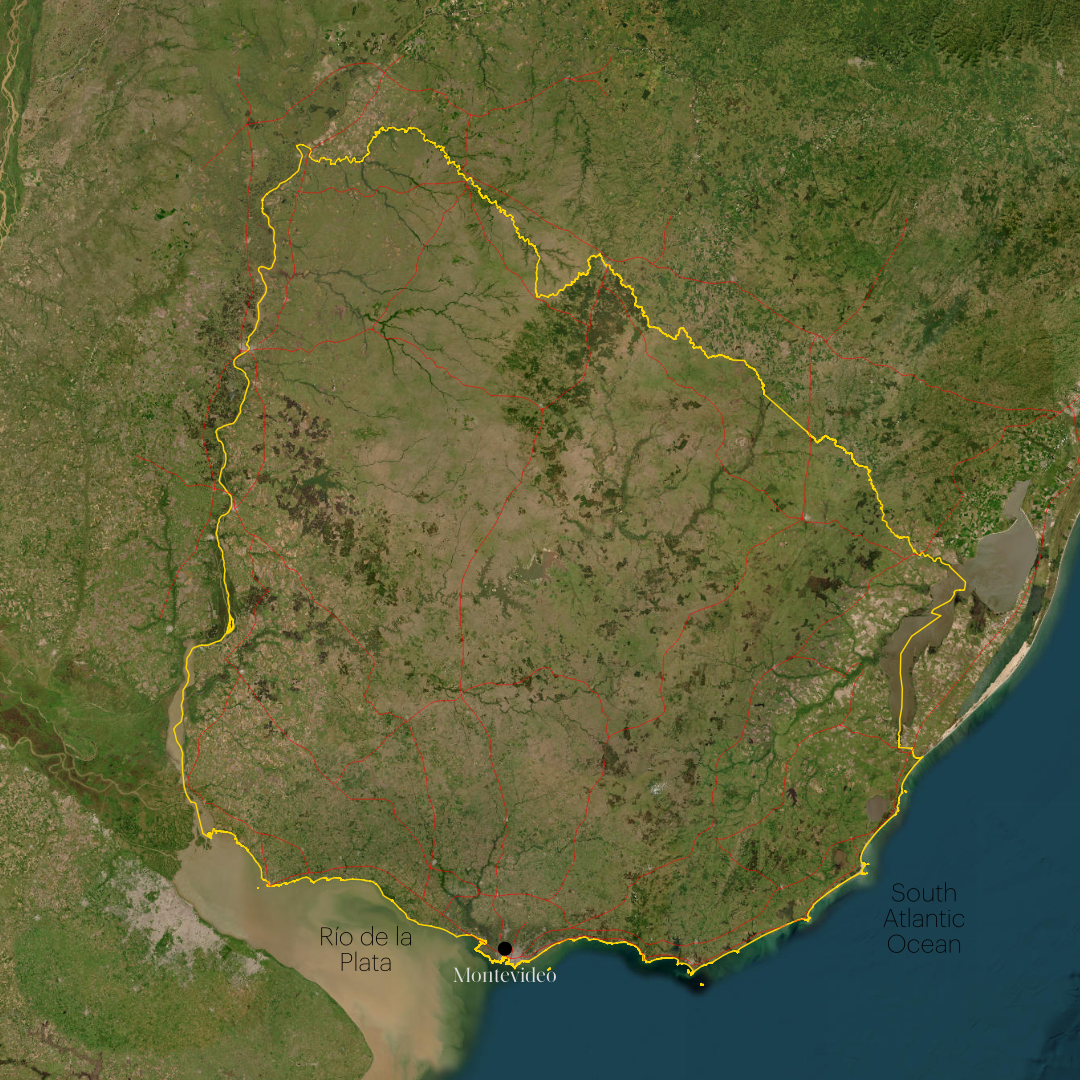In Uruguay, there are currently approximately 3,900 dairy farmers. In recent decades there has been a significant increase in milk production at the national level, accompanied by a process of concentration of production systems.Production increased by 52% during the last 15 years, from 1.3 to 2 million liters per year, while the number of dairies decreased by 31%, from 5,100 to 3,900 dairies. This process, together with the changes in the global context, have caused production systems to face new problems. The challenge for Uruguay’s dairy industry in the future will be to make intensification sustainable.

Satellite image of Uruguay’s administration limits and main roads.
During 2019 and 2020, the Project for the Evaluation of the current situation of the Circular Economy for the development of a Roadmap for Brazil, Chile, Mexico and Uruguay was implemented through the CTCN, a project aimed at promoting actions to mitigate climate change and progress in the circular economy for which two value chains were selected, the dairy and meat chain.
The purpose of this technical assistance is to identify and study climate technologies and circularity practices for the treatment and use of flows and materials. In addition, technologies that have worked at the pilot level but have challenges for scaling up will be studied. Centralized models that include waste from other agricultural industries will be evaluated to determine management models, assessing their economic feasibility and co-benefits, and identifying the actors that should participate in order to obtain sustainable models that can be replicated at the national level.
COUNTRY
Uruguay
IMPLEMENTATION PERIOD
2022
DONOR · PARTNER
CTCN/CONSUR
